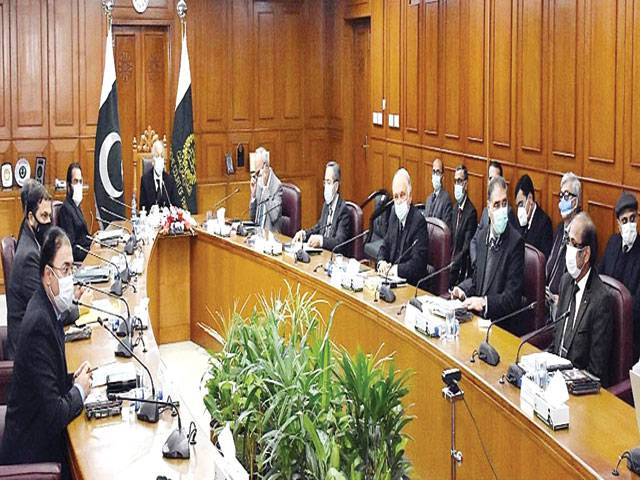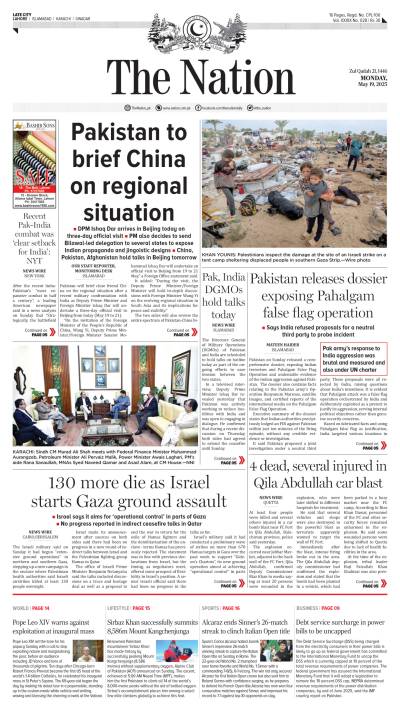ISLAMABAD - Chief Justice of Pakistan Justice Gulzar Ahmed Wednesday emphasized on filling the vacant posts at all levels in the judiciary including the special courts and the efforts be made for placing the special courts under administrative control of the high courts.
The CJP pointed out that in order to curtail the backlog of cases all the High Courts must take all necessary steps for timely disposal of cases.
Chief Justice Gulzar Ahmed who is chairman of National Judicial Policy Making Committee (NJPMC) stated this while presiding over the NJPMC meeting.
On special invitation, the meeting was attended online by Justice Mushir Alam, Senior Puisne Judge of Supreme Court and Justice Umar Ata Bandial, a judge of the apex court.
The CJP/Chairman NJPMC said that the Coronavirus pandemic has affected all spheres of life, however, the judiciary stood firm and took preventive measures for safeguarding judges, lawyers and litigants, etc. Moreover, during the pandemic mostly important matters were heard, keeping in view the potential health hazards faced by judges, lawyers, litigants, witnesses, etc. and decided the majority of the cases instituted during the period from 01.1.2020 to 30.11.2020. He emphasized that the preventive measures against the spread of coronavirus may also be observed in future.
Justice Mushir Alam, Senior Puisne Judge of Supreme Court, informed the Committee that as per NJPMC directions, the LJCP Secretariat has prepared a PC-I for establishment of National Judicial Automation Unit (NJAU) in consultation with all relevant stakeholders. The Ministry of Law and Justice has assured full cooperation in finalization of PC-II and PC-I of the project, he added.
The Committee also approved that living conditions in jails must be improved including health and hygiene facilities for the prisoners. The Committee further emphasized that tests for infectious diseases must be carried out at the time of admission of prisoners in jails and then on periodic basis.
The Secretary, LJCP/NJPMC briefed the Committee about the issues related to the construction of Islamabad Model Jail. It was informed that the Executive Committee of the National Economic Council (ECNEC) approved the PC-I for construction of Islamabad Model Jail in its meeting held on 20.7.2016 at the cost of Rs3.9 billion and that Rs.1442.162 million have been utilized so far.
The Ministry of Interior has communicated decisions of the federal cabinet that in case the judiciary directs to go ahead with the construction of Islamabad Model Jail then the area covered by the existing structure (approx. 20 acres) shall be utilized for the same, otherwise the structure shall be demolished and the Islamabad Model Jail may be relocated to another site outside the city.
It was further briefed that the construction of Islamabad Model Jail was initiated upon the direction of the Supreme Court and 90 acres of land was allotted for its construction.
The Director General, Monitoring Cell Model Courts, briefed the Committee about the performance of Model Courts and the Chief Justice of Pakistan directed that the MITs of all the respective High Courts should submit a comprehensive report regarding the Model Courts within two months.






